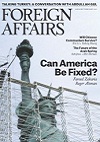In November 2012, the Chinese Communist Party (CCP) held its 18th National Congress, setting in motion a once-in-a-decade transfer of power to a new generation of leaders. As expected, Xi Jinping took over as general secretary and will become the president of the People’s Republic this March. The turnover was a smooth and well-orchestrated demonstration by a confidently rising superpower. That didn’t stop international media and even some Chinese intellectuals, however, from portraying it as a moment of crisis. In an issue that was published before the beginning of the congress, for example, The Economist quoted unnamed scholars at a recent conference as saying that China is “unstable at the grass roots, dejected at the middle strata and out of control at the top.” To be sure, months before the handover, the scandal surrounding Bo Xilai, the former party boss of the Chongqing municipality, had shattered the CCP’s long-held facade of unity, which had underwritten domestic political stability since the Tiananmen Square upheavals in 1989.
To make matters worse, the Chinese economy, which had sustained double-digit GDP growth for two decades, slowed, decelerating for seven straight quarters. China’s economic model of rapid industrialization, labor-intensive manufacturing, large-scale government investments in infrastructure, and export growth seemed to have nearly run its course. Some in China and the West have gone so far as to predict the demise of the one-party state, which they allege cannot survive if leading politicians stop delivering economic miracles.
This article was originally published by Foreign Affairs. You can read the rest of the article here.
You can read exclusive content from Gateway House: Indian Council on Global Relations, here.
Copyright © 2013 by the Council on Foreign Relations, Inc.


